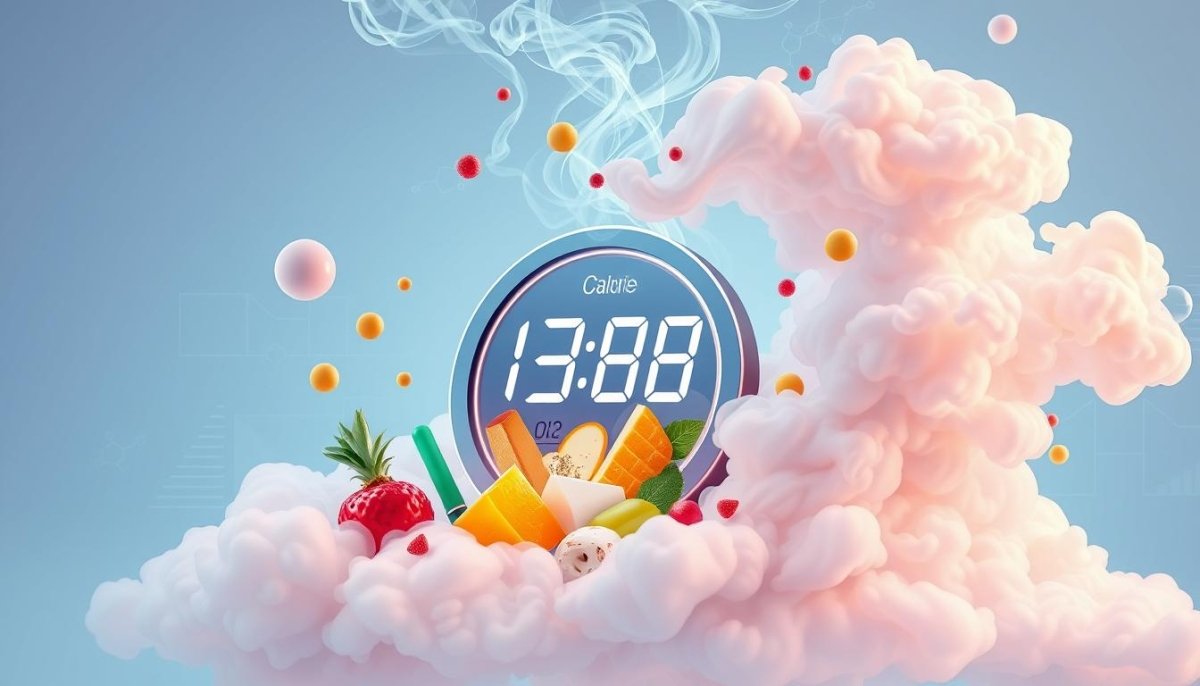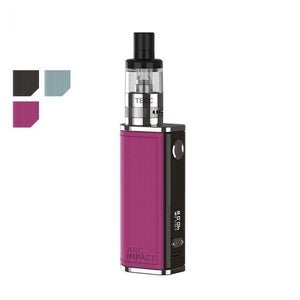Does Vape Have Calories? - What Science Says

Does Vape Have Calories? - What Science Says
Did you know over 3 million adults in the UK now use e-cigarettes? This is a big change in how people smoke. As vaping becomes more popular, a question pops up: does vape have calories? This simple question leads to a big debate among scientists.

If you're watching your weight or care about your health, knowing about calories in vaping is key. The idea of calories in vapour might sound strange. But it's something to think about, especially with what's in e-liquids. Let's look at what science says about vaping and calories.
We'll dive into the facts about e-cigarette parts and how they might affect calorie intake. Whether you vape or just want to know more about it, this article will help. It aims to reveal a lesser-known part of vaping.
Key Takeaways
- Over 3 million UK adults use e-cigarettes
- The question of calories in vape is a growing concern
- E-liquid ingredients may influence caloric content
- Understanding vaping calorie intake is important for health-conscious individuals
- Scientific research on this topic is ongoing
Understanding Vaping: A Brief Overview
Vaping has grown in popularity, sparking debates about its calorie content and health effects. It's important to know what vaping is and how it works.
What is Vaping?
Vaping means inhaling vapour from an electronic device. These devices, known as e-cigarettes, heat a liquid to make an aerosol. Many see vaping as a safer choice than smoking.
How Vaping Works
E-cigarettes have a battery, heating element, and a cartridge with e-liquid. When turned on, the device heats the liquid, turning it into vapour. This is different from smoking, which burns tobacco.
The e-liquid, or vape juice, has several ingredients:
- Propylene glycol or vegetable glycerin (base)
- Nicotine (optional)
- Flavourings
Many wonder about the calorie content in vape juice. But vaping doesn't involve eating like food or drinks. The calories in e-cigarettes are very small and unlikely to change your diet much.
"Understanding vaping's mechanics is key to judging its health and calorie impact," says Dr Emily Clarke, a respiratory specialist at King's College London.
We will look deeper into e-cigarettes and their calorie content. This will help us understand vaping's nutritional effects better.
The Components of E-Cigarettes
E-cigarettes have several key ingredients that make up the vaping experience. Knowing about these parts is key for those worried about vape and weight gain or looking for vaping nutrition facts.
Nicotine and Its Effects
Nicotine is the main active ingredient in most e-liquids. It's a stimulant that can affect how fast you metabolize food and your appetite. Even though nicotine doesn't have calories, it might help with weight management by making you feel less hungry.
Propylene Glycol and Vegetable Glycerin
These two substances make up the base of e-liquids. Propylene glycol (PG) and vegetable glycerin (VG) are calorie-free and don't directly cause weight gain. They help create vapour and carry flavours.
Flavourings in E-Liquids
E-liquids have many flavours, from fruits to desserts. Even though these flavours might taste sweet, they usually don't add many calories to vaping.
| Component | Caloric Content | Potential Impact on Weight |
|---|---|---|
| Nicotine | 0 calories | May suppress appetite |
| Propylene Glycol | 0 calories | No direct impact |
| Vegetable Glycerin | 0 calories | No direct impact |
| Flavourings | Negligible | Minimal to none |
Even though e-cigarettes don't add many calories, it's important to remember that vaping isn't a way to lose weight. The link between vaping and weight management is complex and needs more research.
Do Vapes Contain Calories?
Many vapers ask if e-liquids have calories. This section looks at what's in vape juices and how many calories they might have. It helps clear up the idea of vaping without calories.
Examining E-Liquid Ingredients
E-liquids have four main parts: propylene glycol, vegetable glycerin, flavourings, and nicotine. These ingredients give us the vaping experience but don't add many calories. Most vape options with fewer calories are good for those who are careful about what they eat.
| Ingredient | Caloric Content (per ml) | Function |
|---|---|---|
| Propylene Glycol | 4.0 calories | Vapour production, flavour carrier |
| Vegetable Glycerin | 4.3 calories | Vapour production, smoothness |
| Flavourings | Negligible | Taste enhancement |
| Nicotine | 0 calories | Stimulant effect |
The Role of Propylene Glycol
Propylene glycol is key in e-liquids. It helps carry flavours and gives vapers that throat hit they like. Even though it has calories, the amount in vaping is tiny. This means vaping doesn't add much to your calorie count, proving it's close to calorie-free.
In summary, e-liquids do have calories, but they're so few they don't matter much for your diet. This makes vaping a good choice for those looking for a low-calorie alternative to smoking.
The Science Behind Calories
Understanding calories is key when looking at vape as a diet aid and its effect on metabolism. Let's explore the science behind these energy units and how they're measured.
What are Calories?
Calories are the energy our bodies get from food and drink. They power our daily tasks, from breathing to running. If we eat more calories than we burn, our bodies store the extra as fat. This balance is important when thinking about vaping's role in weight management.
How Are Calories Measured?
Scientists use a device called a bomb calorimeter to measure calories. It burns food samples and measures the heat. For e-liquids used in vaping, similar methods find their energy content. Knowing these measurements helps us understand vaping's effect on metabolism.
Vaping itself doesn't add many calories. But some wonder if it could affect weight indirectly. They ask if vaping might reduce hunger or increase metabolism, helping with diet. Yet, these effects are not proven and need more study.
| Method | Application | Relevance to Vaping |
|---|---|---|
| Bomb Calorimeter | Food Energy Content | E-liquid Analysis |
| Indirect Calorimetry | Metabolic Rate | Vaping's Metabolic Impact |
As we look into vaping and calorie intake, we must think about both direct and indirect effects. The next parts will dive deeper into these topics. They will shed light on vaping's potential role in diet and metabolism.
Caloric Content of E-Liquids
Many people wonder about the caloric impact of vaping. Let's explore the facts about e-liquids and their potential calorie content.
Are There Any Calories in Vaping?
The question "does vape have calories" is common among users. E-liquids contain propylene glycol, vegetable glycerin, flavourings, and nicotine. These ingredients have very little caloric value. A standard puff from an e-cigarette delivers less than 5 calories.
https://youtube.com/watch?v=AXcim-BqmZ4
Comparison with Other Consumed Products
To put vaping calorie intake into perspective, let's compare it with everyday items:
| Item | Calories |
|---|---|
| Average e-cigarette puff | Less than 5 |
| Single grape | 2 |
| Stick of sugar-free gum | 5 |
| Cup of black coffee | 2 |
As we can see, the caloric content of vaping is very low compared to other common consumables. Even frequent vapers are unlikely to notice any significant impact on their calorie intake from e-cigarette use alone.
The Impact of Vaping on Metabolism
Vaping is seen as a better choice than smoking, but its effects on the body are still debated. People wonder if vaping affects metabolism and appetite. Let's look at what research says about vape juice calories and its impact on our metabolism.
Does Vaping Influence Caloric Burn?
Vaping doesn't directly burn calories, but some studies suggest it might slightly affect metabolism. Nicotine in e-cigarettes can increase heart rate and metabolic rate a bit. But this effect is very small and not a good way to lose weight.
The Relationship Between Vaping and Appetite
Nicotine can make you feel less hungry, which might help with weight control. But vaping's effect on metabolism is more complicated. It might make you feel less hungry for a while, but it's not a healthy way to manage weight.
| Aspect | Impact on Metabolism | Impact on Appetite |
|---|---|---|
| Nicotine | Slight increase in metabolic rate | Temporary appetite suppression |
| Flavourings | Negligible impact | May trigger cravings in some users |
| Overall Effect | Minimal influence on calorie burn | Short-term reduction in hunger |
It's important to remember that vape juice has very few calories. But, the long-term health effects of vaping are still being studied. The impact of vaping on metabolism shouldn't be the main reason to decide if you should vape or not.
Common Misconceptions About Vaping
Vaping has grown in popularity, but many myths surround it. We'll look at common misconceptions, especially about calories in e-cigarettes and vaping and weight gain.
Vaping vs Smoking: A Myth Exploded
Many think vaping is as bad as smoking. This is not true. Vaping is not risk-free, but it's seen as less harmful than smoking. The worry about calories in e-cigarettes often leads to concerns about weight gain from vaping.
The Iceberg of Misunderstandings
Misunderstandings about vaping are widespread. A common myth is that vaping causes a lot of weight gain. But, the relationship between vaping and weight gain is complex and not simple.
| Myth | Reality |
|---|---|
| Vaping has high calorie content | E-cigarettes contain negligible calories |
| Vaping always leads to weight gain | Weight changes vary among individuals |
| Vaping is as harmful as smoking | Vaping is generally considered less harmful |
Knowing these facts helps clear up vaping myths. While vaping is not completely safe, worries about calories in e-cigarettes and automatic weight gain are often too high. As with any habit, being mindful and making informed choices is important.
Risks and Health Considerations
Vaping seems like a good choice because it's calorie-free. But, there are health risks to think about. It's important to know these risks before using e-cigarettes.
Health Risks Associated with Vaping
Vaping is popular as a smoke-free option. Yet, it can harm your health. It has been linked to lung injuries and breathing problems.
Inhaling heated e-liquids can irritate your airways. This might cause coughing and breathing difficulties.

Long-Term Effects of Inhalation
The long-term effects of vaping are still unknown. Scientists worry about its impact on lungs and heart. Even though it's calorie-free, the health risks are real.
| Vaping Concern | Potential Health Impact |
|---|---|
| Nicotine Addiction | Increased heart rate, blood pressure |
| Chemical Exposure | Lung irritation, respiratory issues |
| Flavouring Compounds | Possible lung damage, allergic reactions |
| Long-term Use | Unknown chronic health effects |
Vaping might seem like a good choice for those who want to avoid calories. But, it's crucial to consider the health risks. More research is needed to understand vaping's long-term effects on health.
The Role of Artificial Sweeteners
Artificial sweeteners are key in vaping, especially for those looking for low-calorie options. They add flavour without calories, making them great for dieting.
Can Sweeteners Add Calories?
Most artificial sweeteners in e-liquids have no calories or very little. This is perfect for flavourful vapes without extra calories. For weight-watchers, these options are a tasty swap for snacks or sugary drinks.
Popular Sweeteners in E-Liquids
E-liquid makers use different sweeteners for tasty flavours. Here are some common ones:
| Sweetener | Calories per gram | Common use in e-liquids |
|---|---|---|
| Sucralose | 0 | Fruit and dessert flavours |
| Stevia | 0 | Herbal and natural flavours |
| Erythritol | 0.2 | Candy and sweet flavours |
| Xylitol | 2.4 | Mint and cooling flavours |
Even though these sweeteners add almost no calories, vaping shouldn't just be for dieting. It's important to focus on health and well-being, not just calorie counting.
As research goes on, artificial sweeteners in vaping might change. This could lead to even better low-calorie vape options for dieting.
Vaping's Popularity Among Different Age Groups
Vaping has become popular in the UK among different ages. Each group has its own reasons and trends. Many ask if vaping has calories, especially those who want a healthier option than smoking.
Trends in Vaping Among Young Adults
Young people in the UK see vaping as cool and safer than smoking. They often try different flavours, not always knowing about calories. A recent survey showed:
- 25% of 18-24 year-olds have tried vaping
- Flavour variety is a key factor for 70% of young vapers
- 15% express concern about calorie content in e-liquids
Vaping in Older Demographics
Older adults use vaping to help them stop smoking. They worry more about health, including calories from vaping. A study of vapers aged 45+ found:
- 60% switched to vaping to quit smoking
- 40% researched whether vapes have calories before starting
- 30% opted for low-calorie or calorie-free e-liquids
Even though vaping calories are usually low, people's views on it change with age. This affects how they vape and what they choose.
Regulations Surrounding Vaping Products
The UK has strict rules for vaping products. These rules are to keep consumers safe and ensure products are of good quality. They cover things like the calorie content in vape juice and calories in e-cigarettes.
UK Laws on E-Cigarettes
UK laws on e-cigarettes are detailed. They cover safety, packaging, and labelling. The Tobacco and Related Products Regulations 2016 outline these rules:
- E-liquid containers must not exceed 10ml
- Nicotine strength is limited to 20mg/ml
- Manufacturers must provide detailed ingredient lists
- Health warnings are mandatory on packaging
Implications for Manufacturers
These rules mean a lot for vape makers. They must:
| Requirement | Impact |
|---|---|
| Disclose ingredients | Including potential caloric content of e-liquids |
| Ensure product safety | Regular testing and quality control measures |
| Comply with packaging rules | Clear labelling of ingredients and warnings |
| Register products | Submit detailed information to health authorities |
Even though there's no need to list calories in vape juice, makers must give a full ingredient list. This helps users know what they're vaping, including any calories.
Alternatives to Traditional Vaping
More people are looking for alternatives to traditional vaping due to concerns about vape and weight gain. These options aim to offer similar experiences but with better nutrition facts. Let's look at two popular alternatives and how they might affect calorie intake.
Nicotine Pouches and Their Caloric Content
Nicotine pouches are small bags you place between your gum and lip. They give you nicotine without the need to breathe it in. Unlike vapes, they have very few calories, making them a good choice for those who don't want to gain weight.
| Product | Calories per Serving | Nicotine Content |
|---|---|---|
| Traditional Vape | 5-10 | 3-50 mg/ml |
| Nicotine Pouch | 0-2 | 2-12 mg/pouch |
Herbal Vapour Products
Herbal vapes use plant-based materials instead of nicotine. They often have fewer calories than traditional vapes, which might help with weight concerns. Popular herbs include peppermint, chamomile, and lavender.
While these alternatives might help with some nutrition facts concerns, it's important to remember they still have health risks. Always talk to a healthcare professional before trying new products, especially if you're worried about vape and weight gain.
Future of Vaping in the UK
The vaping scene in the UK is changing fast. New studies and changing views are shaping its future. More people are looking into vaping without calories and low-calorie options.
Ongoing Research on Vaping and Health
Scientists are always looking into vaping's long-term health effects. They're studying how vaping without calories could help with weight. They're also looking into how low-calorie vapes might affect our metabolism and hunger.
| Research Area | Focus | Potential Implications |
|---|---|---|
| Calorie-free vaping | Impact on weight management | Possible alternative for dieters |
| Low-calorie vape options | Effects on metabolism | Potential aid in calorie control |
| Flavour additives | Nutritional impact | Development of healthier e-liquids |
The Shift in Public Opinion
People's views on vaping are changing. Many see vaping without calories as a way to manage weight. The growing interest in low-calorie vapes shows a move towards healthier living.
As research and awareness grow, the UK vaping industry will likely see more innovations. This could make vaping a healthier choice compared to smoking.
Tips for Safer Vaping
Vaping is becoming popular as a diet aid, with some looking at its effect on metabolism. It's important to pick quality products and understand what's in them.
Selecting Quality Products
Choose e-liquids from trusted brands with clear ingredient lists. Make sure they're made in places that follow safety rules. If you're vaping to help with diet, consider nicotine-free options. They might have less effect on your metabolism.
Understanding Labels and Ingredients
It's key to read e-liquid labels well. Here's what to look for:
- Nicotine content: This can influence appetite and metabolism
- PG/VG ratio: Affects vapour production and throat hit
- Flavourings: Natural options may be preferable
- Sweeteners: Can impact calorie content
Vaping might change your metabolism, but it's not a healthy diet or exercise substitute. Always talk to a doctor before using vape for dieting.
| Ingredient | Potential Impact | Considerations |
|---|---|---|
| Nicotine | May suppress appetite | Can be addictive |
| Propylene Glycol | Minimal caloric impact | May cause throat irritation |
| Vegetable Glycerin | Slightly sweet taste | Higher calorie content than PG |
| Flavourings | Vary in caloric content | Natural options may be safer |
Vaping and Weight Management
Many people are curious about vaping and weight control. This section looks into if vaping affects body mass and if it can help with weight management.
Can Vaping Help with Weight Loss?
Some people think vaping can help with weight loss. They believe it might reduce hunger or be a low-calorie snack substitute. But, it's important to remember that e-cigarettes are not made for weight loss.
There's not much research on vaping and weight loss. Some studies say nicotine in e-liquids might make you feel less hungry. But, this effect is short and doesn't lead to lasting weight loss.
Considerations for Weight Gain
On the other hand, some vapers gain weight after switching from cigarettes. This could be because of several reasons:
- Improved taste perception leading to increased food enjoyment
- Reduction in nicotine intake, which can affect metabolism
- Oral fixation satisfied by snacking instead of vaping
It's worth noting that e-liquids have almost no calories. Weight changes from vaping are more likely due to how you behave and your metabolism, not from vaping calories.
| Factor | Potential Impact on Weight |
|---|---|
| Nicotine in E-liquids | Temporary appetite suppression |
| Flavourings | May increase cravings for sweet foods |
| Oral Fixation | Could lead to increased snacking |
In conclusion, vaping is not a reliable way to manage weight. But, its effects can differ from person to person. The best way to stay healthy is still a balanced diet and regular exercise.
Conclusion: The Caloric Debate Surrounding Vaping
The debate about calories in vape juice has been ongoing. Our research shows that e-cigarettes have almost no calories. The main ingredients in e-liquids, like propylene glycol and vegetable glycerin, don't add much to your calorie count when you vape.
Summary of Key Findings
Studies confirm that e-cigarettes have very few calories. Some flavourings might have a tiny bit of calories, but the amount you breathe in doesn't affect your weight or health. This clears up worries that vaping could make you gain weight.
Final Thoughts on Vaping and Health
Even though vape juice has almost no calories, vaping isn't completely safe. It might be better than smoking, but we still don't know all the long-term effects. It's important for users to keep up with the latest health risks and rules about e-cigarettes in the UK.
As more research comes in, we learn more about vaping's health effects. For now, the calorie debate is over, but we need to keep looking into other safety issues related to vaping.
FAQ
Does vape have calories?
E-liquids in vaping have almost no calories. The main parts, propylene glycol and vegetable glycerin, do have calories. But the tiny amount inhaled is too small to matter for dieting.
Can vaping cause weight gain?
There's no clear link between vaping and weight gain. Nicotine in e-liquids can change how you eat. Some might eat differently after switching from smoking to vaping, which could affect weight.
Are there any low-calorie vape options?
Since e-liquids are almost calorie-free, there's no need for "low-calorie" ones. But, some vapers choose e-liquids without sweeteners, thinking they're healthier.
Can vaping be used as a diet aid?
Vaping should not help with dieting. Nicotine might make you eat less, but it's not safe for weight loss. It can lead to addiction and health problems.
How does vaping impact metabolism?
Nicotine in e-cigarettes might slightly increase metabolism. But this effect is small and not a good way to lose weight. The full effect of vaping on metabolism is still being studied.
Are there any nutritional facts for vaping products?
Vaping liquids don't have nutritional labels like food does. They're not meant to be eaten and the tiny amounts inhaled don't matter. But, makers must list what's in them and how much nicotine.
Can artificial sweeteners in e-liquids add calories?
Artificial sweeteners in e-liquids don't have calories. Even if they did, the tiny amount inhaled wouldn't add up to much.
How do UK laws regulate the calorie content of e-cigarettes?
UK laws don't focus on e-cigarettes' calorie content. They're more concerned with nicotine levels, liquid amounts, and safety of ingredients.






